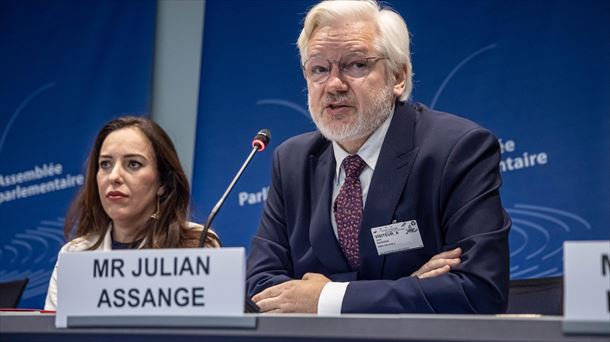How do people deal with growing memory impairments? What help do you and your family need? An Innsbrucker talks about his life with forgetfulness and his disappointment at how old friends react to his illness.
Technology was Norbert Wieser’s absolute specialty throughout his professional life. He passed on his knowledge as a teacher. He has traveled the world as a much sought-after expert. The man from Innsbruck smiles cheerfully when he talks about his world trips.
Today Norbert Wieser’s world is smaller. The diagnosis of Parkinson’s and the subsequent onset of dementia delayed the construction engineer. “I didn’t want my life to be like this,” he says, then pauses. Wieser searches for the right words. They don’t come to mind as quickly as they used to. Sometimes not at all. But most of all. “I had to stop working. I now have a lot of free time, but that is not a victory”, the Innsbruck resident sums up his situation aptly.
Self-help group is an important anchor for those affected
Every two weeks Wieser visits the self-help group “Living with Forgotten”, organized by Caritas. Here people philosophize about life and forgetfulness. “Society associates dementia with a serious illness with severe cognitive impairment. However, we overlook the much larger group of people who, despite memory disorders, can still live very independently – and above all want to!” emphasizes Christina Pletzer. Together with Petra Knoflach, the psychologist supervises the self-help group and advises those affected and their families how to live their daily lives. Despite limitations, Pletzer summarized their experiences with Peter Wißmann in the book “Mastering Life”, which was published in October (information at: demenz-ratgeber.at).
A lot of fear of contact in the social environment
“It hurts when old friends suddenly stop calling and when they meet they don’t seem to know how to deal with me,” Norbert Wieser describes his experiences with the extended social environment. His wife is Innsbrucker’s main support in everyday life. She helps him reorganize his life. She offers support where familiar things are suddenly no longer palpable for her husband. A big task for which she would like more support.
Personal assistants as valuable support
The experts advocate the use of “personal assistants”, similar to those in care for the disabled. These assistants can accompany those affected by the hour or day, assist them in dealing with authorities, allow them to travel and, in general, participate in public life. For Petra Knoflach, the advantages are obvious: “Relatives are relieved and those affected are given autonomy.”
Until now, personal assistance was only available to people with other disabilities. This service does not come into play when dementia starts. And otherwise there is a lack of contact points. Pletzer reports that the Innsbruck self-help group is one of the few of its kind in Austria. For Norbert Wieser, regular meetings are “an important moment”. Here he meets people in similar situations, can exchange ideas with them and feels that he and his wife are not alone. A crucial point. “Otherwise you feel very lonely,” says Wieser, describing a feeling that burdens many of those affected and their families.
Society is not yet inclusive
Dementia is no longer taboo, it is picked up by the media and is present. Most of those affected disappear from public life anyway. “Unfortunately, because society does not think inclusively,” says Pletzer, “there are many fears and uncertainties involved.” In addition to good medical and nursing care, it is important to enable participation. Knoflach cites a simple example: “People with dementia don’t want to be without culture if they’ve always loved watching the theater or concerts. But it’s important to accept that they might get up in the middle of the performance and leave because they’re tired.” to be.”
Norbert Wieser has also become tired. Still, he looks happy. “It was a nice conversation”, is his compliment to everyone. Having a say in his concerns is important to him. He likes the idea of a personal assistant. What would he do with this one? “Plan a trip more often”, is the spontaneous answer. Being on the road has always been a great passion of the Innsbruck resident. That remains, even if some memories are missing.
Tyrolean health conversations about dementia
On Thursday, September 29, the “Tiroolean Health Talks” will start again in Innsbruck. The series of events organized by the Tiroler Kliniken, the leading healthcare provider in the European region of Tyrol, South Tyrol and Trentino, in collaboration with the “Tiroler Krone” and ORF Tirol, is dedicated to the topic of dementia and the question of how to deal with the daily life. On the podium are doctors Atbin Djamshidian-Tehrani from the University Clinic of Neurology in Innsbruck, Elisabeth Schöpf from the platform for a dementia-friendly city Innsbruck (VAGET association), Innsbrucks Norbert Wieser as the person involved and Petra Knoflach from Caritas as an assistant. The event will take place at 8pm in ORF’s Studio 3 on Rennweg in Innsbruck. Due to limited seating, please register at studio3.tirol@orf.at or by phone at 512/5343-26220.
Source: Krone
I am Ida Scott, a journalist and content author with a passion for uncovering the truth. I have been writing professionally for Today Times Live since 2020 and specialize in political news. My career began when I was just 17; I had already developed a knack for research and an eye for detail which made me stand out from my peers.



